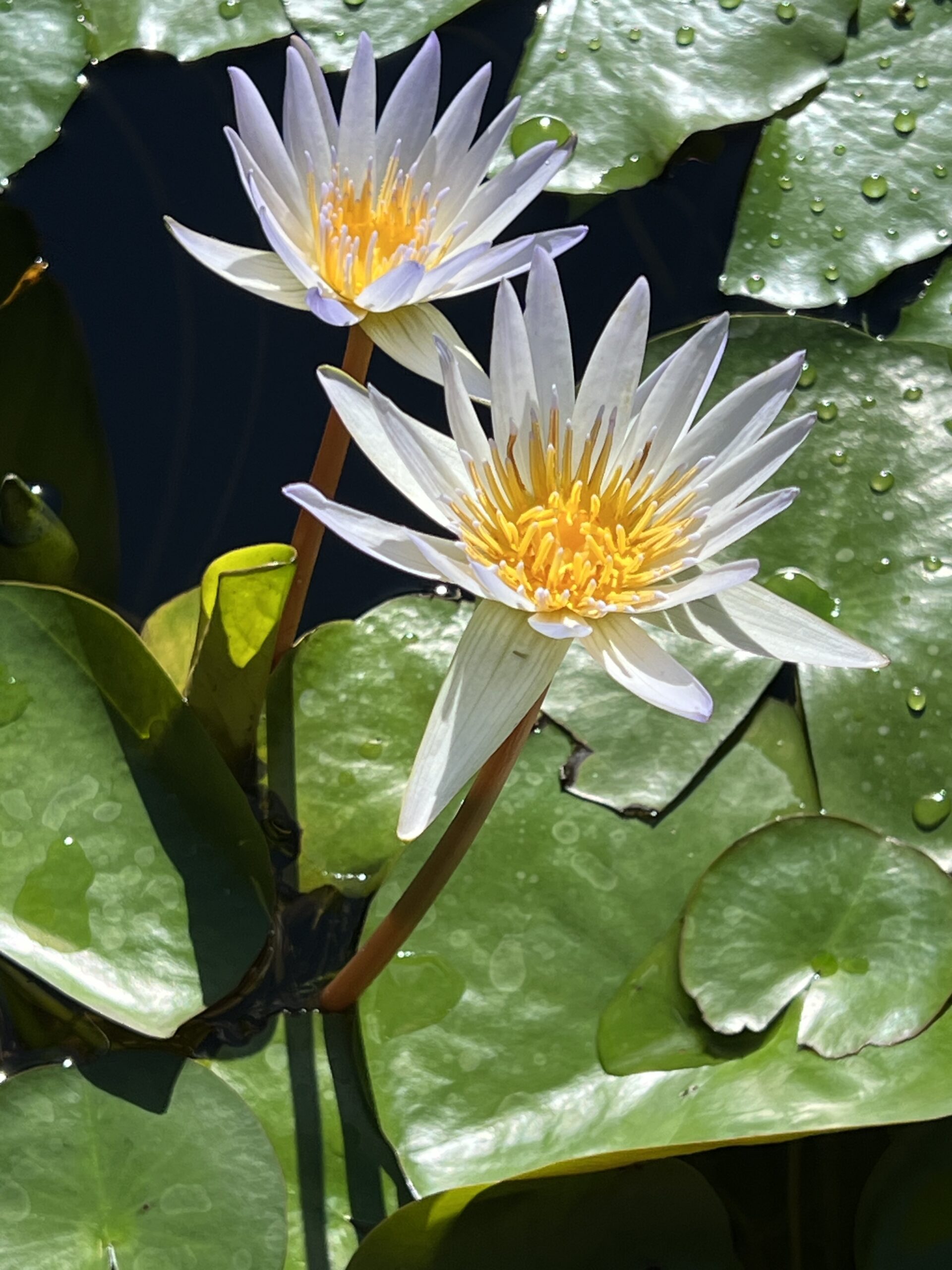BLOG 34
CURIOSITY
“This is a dream. I am free. I can change.”
(Tenzin Wangyal Rinpoche)
As I begin this week’s blog, I shield myself from a fiercely windy Hawaiian morning in the relative shelter of the lanai. Across from me the soaked trunk of a coco palm, its crown cut off by the roofline, so resembles the leg of an elephant that it gets me thinking about these magnificent beasts (about which I know next to nothing). Because the theme for this week’s blog presented itself as ‘curiosity’ I became curious about elephants, and curious to know if they were known for having curiosity. This sparked a fascinating foray into elephant research and lore. So much so that I lost my original train of thought and got wrapped up in the ethics of keeping such known-to-be-highly-intelligent creatures in circuses, zoos and even sanctuaries.
The following quote brought my attention back on topic:
“One characteristic that is readily apparent with elephants—and with many other species—is that they can exude a wide variety of personalities. They can be bold or shy, laid-back or short-tempered, curious or afraid, and the list goes on.”
In fact, scientists are discovering that elephants are also creative problem solvers, they mourn their lost loved-ones, and are self aware:
“Self-awareness in both animals and young children is usually tested using the ‘mirror self-recognition test’ to see if they understand that the reflection in front of them is actually their own. Only a few species have so far shown themselves capable of self-recognition – great apes, dolphins, magpies and elephants.” (Cambridge University)
It’s humbling to contemplate just how smug we humans can be regarding our presumed emotional or intellectual superiority over the animal kingdom with which we share our origins. But, once aware of this tendency, we can use our mental capacities to adapt and change in ways that improve living conditions for a wide variety of life forms. Flexibility of thought combined with creative application of new insights and ideas are what give us our advantage over less evolved creatures. By constantly pushing out boundaries, humans have come from living in caves without plumbing or electricity to inventing the plethora of mod-cons that we take for granted today. From occupying a small plot of earth from cradle to grave, we have used modern technology to travel the globe and extend our reach even into outer space.
In this spirit of exploration and discovery I have begun studying Andrew Holecek’s Dream Yoga; Illuminating Your Life Through Lucid Dreaming and the Tibetan Yoga of Sleep that was casually given to me by a neighbor who somehow ended up with an extra copy. In this offhand way I received something that has more than piqued my curiosity, seeming to answer a question I had been asking as to the next steps on my evolutionary journey. My question had been: “If life is but a dream, how can I free myself from the illusions that I have mistaken for reality? How can I change my sense of self in essential and profound ways? Upon first perusal I read:
“This book is like a tour into your innermost self. As many guidebooks say, we’re going to leave familiar territory and journey into foreign lands. It takes an intrepid spirit to leave the comfortable and familiar and travel into the unknown, but as any seasoned world traveler knows, the moments of hassle and discomfort are worth it. You will return from this inner journey, just as you would any outer sojourn, a better and more worldly person. You will become infinitely more cosmopolitan because you will connect not just to the people you might meet in places like Istanbul or Delhi (if you were to venture out into the world), but to all people everywhere as you venture into a shared inner domain.”
What better time to take such a journey than when I am sentiently recovering from hip replacement surgery? As is my wont, I looked up ‘sentiently’ to make sure it was a word, and found the definition: “a way that shows that someone or something is conscious and able to experience feelings.
I had actually meant to use the word sedentary: “(of a person) tending to spend much time seated; somewhat inactive” but gravitate to ‘sentiently’ because it conveys my intention to use this fallow time to take stock of my life. To come to terms with the feelings of apathy, and thoughts of mortality that had lately taken up residence in my mind, circumscribed as it was by chronic pain and limited mobility.
As I’ve just begun reading, there’s little I can say about this new line of inquiry, but am encouraged by what I gleaned from the introduction:
“This inner journey may take you temporarily out of the comfort zone of your familiar home in the gross mind and outer body, but it will eventually deliver you to your true home in the center of yourself, and the bed of mind that you share with all sentient beings. Then you might arise from this bed and come back from this inner journey to re-inhabit your outer forms, and your everyday life, with the newfound treasures you have discovered within. And perhaps, just like the masters of old, you will then offer these riches to others and invite them to do the same.”
Heigh ho, heigh ho, it’s off to dream yoga I go…
